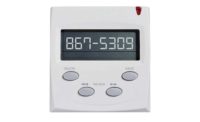Code blue? Hardly. Customer loyalty is far from dead, but it does need lots of attention. First and foremost, we provided above-and-beyond customer service – sudden service, if you will. My approach was always one call does it all. After attending trade shows, like ISH in Frankfurt, Germany, or AHR here in the states, I always returned with new ideas and products that kept us on the bleeding edge of technology. Parts of every trade show included seminars and training – both classroom or in the booth presentations.
I clearly remember the first time, as an apprentice in 1972; I requested time off to attend an all-day training sponsored by one of our local wholesalers being taught by Burnham (now US Boiler). My two bosses were not happy and asked why I wanted to attend. Back in the early 1970’s, most owners of mechanical contracting firms were reluctant to send employees to seminars for training. They were afraid we would end up knowing more than they did! I was granted a day off without pay. What, pray tell, does training have to do with customer loyalty? Building your own personal knowledge base gives you an edge over your competition because you are positioned to give far better customer service.
Before the Internet came along, our only means of communicating with product manufacturers was through our salesperson and others at the wholesaler level. In most cases, that remains the primary source and how your sales team responds can make, or break, the chain of customer loyalty. Do you require your salespeople to attend the same training you offer to your contractor customers? The better wholesalers we dealt with always had their salespeople attend, which also helped cement our personal relationships. In the final analysis, we buy from people and the relationships we have developed. In my case, my first salesman stopped by to see me even though I was just a one-man operation in 1979. He stuck by me as my company grew and remained my salesman/friend/confidant even after he became the branch manager and another salesman called on us. When he moved on to another wholesaler, our purchases followed with him.
Once I had my own business, it was policy to pay our employees their hourly wages whenever they attended training. Training, the more technical in-depth courses, often included a step-up in pay too. The more you learn, the more you earn!
Providing training motivates and engages employees who become more involved, enthusiastic, knowledgeable (per product training), reenergized and this improves the level of customer service. Training leads to motivated salespeople leads to better customer service. Training also allows your sales force to do more than just drop off a shiny leaflet because they can extol the virtues of the widget and how that will benefit their customers. Couple that with the manufacturer’s link provided, which often includes videos illustrating the features and benefits.
Training saves money. Your contractor customers who avail themselves of the training you and/or the manufacturers of products provide will have far fewer issues with their installations, which will save you lots of money and be far less aggravating. I’m always amazed when wholesalers/manufacturers turn into contortionists by bending over backwards to help installers who have failed to follow the installation and operating manuals they ignored or used as kneepads! The free products and hours spent handholding have a significant negative impact on your bottom line. When I traveled to ISH in Germany in 2003, our group spent the first day and night at the Viessmann Academy where mechanical contractors receive both technical bookwork and hands-on training in order to gain approval for working on any of the Viessmann products. Training is not optional – it is mandatory. I have often wished our US manufacturers would require training before anyone can be authorized to work on their equipment or purchase parts. Given that that will never be a reality, perhaps you could incentivize the training for the contractors who get certified by providing a set discount on purchases of that product. Remember the 2% discount if the monthly billing was paid by the 10th? I never missed a discount but I sure missed them when they were no longer offered.
Empower your sales force! My employees were empowered to handle customer complaints and do whatever was needed to keep our customer happy. They did not need to call me, or the office, to offer a suitable resolution. We all know when a customer’s request is out-of-bounds, and that’s the time to involve a higher authority. Set boundaries, but grant your employees the power to provide assistance or products, within reason, to keep customers content. Customers who are chronic complainers and become a liability should be handled separately and we all know who they are. Although rare, there comes a time when it is necessary to fire a customer too. In my decades of owning the business, I can count on one hand the number of customers I fired, but they richly deserved being shown the door!
Diligently, and repeatedly, work on customer service. Improving customer service builds customer loyalty. Loyal customers provide repeat business and the closer your relationship, cemented by positive experiences with your people and the products you provide, the more you will sell.
Communication is King. When I first started as an apprentice, we either had to phone (landline) or stop by the wholesale house counter. In 1979, I purchased a bag phone, which was a two-way radio that was connected to a tower and a touch-tone landline. It was a party-line and if others felt you were hogging up the airwaves, they could step on your conversation and tell you off. In overcast weather conditions, the signal would skip and we would be included in conversations from the anthracite region coal truck drivers, whose language was quite salty at times. A fax machine joined your and my teams. Then came pagers, but we still had to find a land-line and that often was a phone booth. Then came two-way radios that chirped whenever you depressed the mic. The person you were targeting also received an audible chirp and you could start the conversation immediately.
I was glad I was not a salesperson at that time because each chirp demanded immediate attention and we had to set some ground-rules for any interruptions during their visits to our office. The Internet opened the way for emails, but not the best medium if we had an urgent need. That said, it was in writing, which eliminated any misunderstandings on an order. Flip-phones evolved into bigger cell phones and today we all rely heavily on our smartphones for texting, emails, phone calls, documenting issues with pictures and communicating with loads of products we install. Communication is the lifeblood of customer loyalty.




